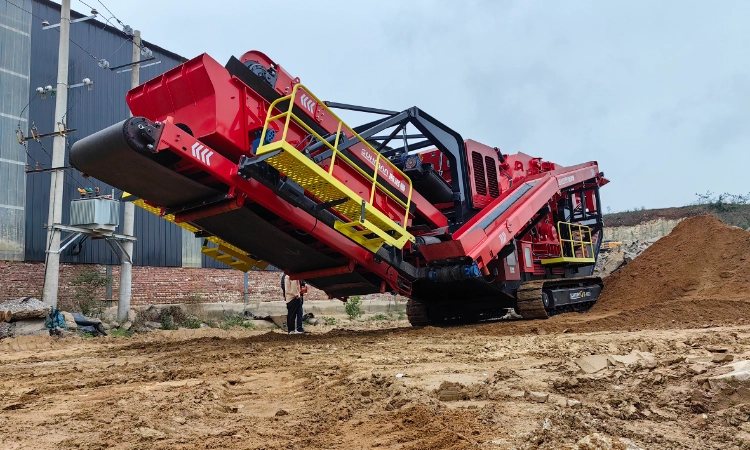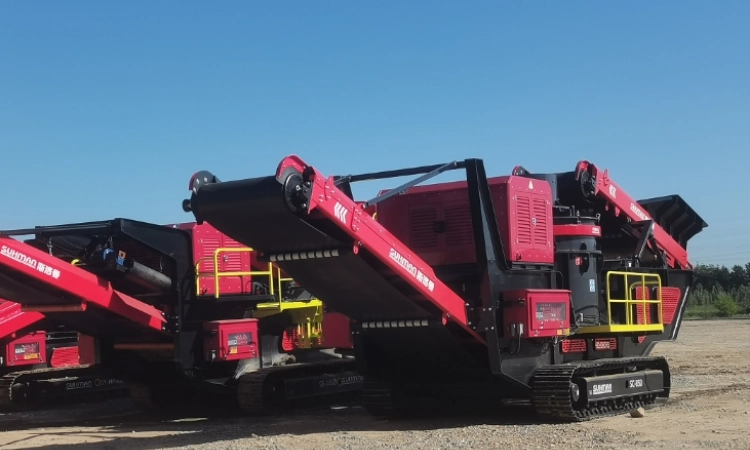Understanding the Differences Between Stationary and Mobile Crusher Plants
Release time: 2024-09-30
Table of Contents
In the world of construction and mining, the choice of equipment is crucial for efficiency and productivity. Among the key machinery used in these industries are crusher plants, which are essential for breaking down large rocks into smaller, manageable sizes. There are two primary types of crusher plants: stationary and mobile. This article explores the differences between these two types, their advantages, disadvantages, and applications.
What is a Stationary Crusher Plant?
A stationary crusher plant is a fixed installation designed to crush materials at a specific location. These plants are commonly found in quarries, mining sites, and large construction projects where high volumes of material need to be processed over an extended period.
Key Characteristics
Fixed Location: The plant remains in one place, typically near the source of raw materials.
High Capacity: Stationary plants are designed to handle large quantities of materials efficiently.
Complex Setup: Requires significant infrastructure and setup time, including foundations, power supply, and transportation systems.
Advantages
Higher Production Rates: Stationary plants can produce larger quantities of crushed materials due to their robust design and larger processing capacities.
Durability: Built to withstand heavy use, stationary plants often have longer lifespans with lower maintenance needs.
Cost-Effective for Large Projects: Ideal for long-term projects, stationary plants can reduce operational costs per ton of material processed.
Disadvantages
Limited Mobility: Once set up, moving a stationary plant to a new location can be time-consuming and costly.
Initial Investment: Higher upfront costs due to the required infrastructure and setup.
_WH_750x450px.webp)
What is a Mobile Crusher Plant?
A mobile crusher plant is a portable unit designed for quick deployment and movement. These plants are equipped with tracks or wheels, allowing them to be transported easily from one site to another.
Key Characteristics
Portability: Can be moved quickly and easily; ideal for projects with changing locations.
Compact Design: Generally smaller and easier to transport than stationary plants.
Flexibility: Can be used in various applications, from small-scale projects to large construction sites.
Advantages
Mobility: The ability to relocate quickly allows for greater versatility in project management.
Reduced Setup Time: Mobile plants can be set up and dismantled rapidly, minimizing downtime.
Lower Initial Investment: Often more affordable for short-term projects or smaller operations.
Disadvantages
Lower Production Capacity: Typically, mobile plants have a reduced capacity compared to stationary plants, making them less suitable for high-volume operations.
Wear and Tear: More prone to wear due to constant movement and potential exposure to harsher conditions.
Dependence on Power Supply: May require additional power sources, especially in remote areas.

Applications of Stationary vs. Mobile Crusher Plants
Both stationary and mobile crusher plants serve different purposes based on project requirements:
Stationary Crusher Plant Applications
Quarries: Ideal for large-scale stone extraction and processing.
Mining Operations: Suitable for continuous operations where material is extracted over a long period.
Large Construction Sites: Effective for projects requiring substantial amounts of crushed aggregate.
Mobile Crusher Plant Applications
Construction Projects: Perfect for road building, bridge construction, and other projects needing flexibility.
Demolition Sites: Allows for easy transportation to various locations as buildings are deconstructed.
Recycling Operations: Efficient for recycling materials on-site, reducing transportation costs and environmental impact.
Conclusion
The choice between a stationary and a mobile crusher plant ultimately depends on the specific needs of a project. Stationary plants excel in high-capacity, long-term applications, while mobile plants offer unmatched flexibility and portability for diverse project requirements. Understanding the differences between these two types of crusher plants can help businesses make informed decisions that enhance productivity and efficiency in their operations. Whether you need the durability of a stationary plant or the versatility of a mobile unit, each type has its unique advantages that cater to different industrial needs.
.png)
.png)


 />
/> />
/>